Novel Writing: Extrapolations
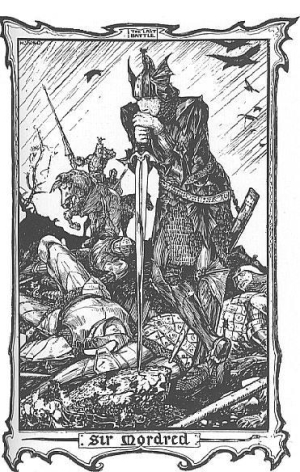 NaNoWriMo continues. I’m adding to my word count, generating text and ideas. Last week, I talked about Malory’s Le Morte d’Arthur, which I’m using as a source text for my novel, and I mentioned that it can act as a spur to creativity.
NaNoWriMo continues. I’m adding to my word count, generating text and ideas. Last week, I talked about Malory’s Le Morte d’Arthur, which I’m using as a source text for my novel, and I mentioned that it can act as a spur to creativity.
This week, I’d like to give an example of what I meant, and go over some of the ways I’m rewriting Malory, and some of the ways I’ve interpreted him in ways that serve the purpose of my own tale. This will therefore be an unavoidably self-indulgent post.
My plan is for the story I’m writing to weave in and out around the events of Malory’s book, presenting bits of Le Morte d’Arthur from a new angle. I’m still going with the basic idea I outlined in my first post on NaNoWriMo; the Arthur story from Modred’s point of view, but a Modred who is half-elven and as deeply enmeshed in the politics of the elven world as of Camelot. Modred as a bitter moralist, struggling against fate; as I said, Modred as Elric.
So how do I get from there to a 50,000 word (or 100,000 word) novel?
Well, I begin by reading Le Morte d’Arthur, or (to be honest) going back and forth over the bits that seem most relevant. A few things leap out at me. To begin with, there’s not much detail on the character of Modred, as indeed Malory gives little overt description of most of his characters. By their deeds shall ye know them. But Modred doesn’t show up that much before the final sections of the book, when he and his half-brother Agravaine expose Launcelot’s adultery with Guenevere, leading to civil war.
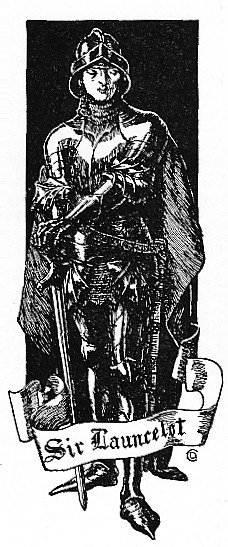 Arthur then chases Launcelot to France, leaving Modred behind as king, and Modred promptly usurps the throne and tries to marry Guenevere, besieging her in the Tower of London. The people love Modred nevertheless, and support him against Arthur when Arthur returns, which is interesting. With Arthur’s return, the final battle’s set up.
Arthur then chases Launcelot to France, leaving Modred behind as king, and Modred promptly usurps the throne and tries to marry Guenevere, besieging her in the Tower of London. The people love Modred nevertheless, and support him against Arthur when Arthur returns, which is interesting. With Arthur’s return, the final battle’s set up.
Modred exposing the affair fits my idea of him as a moralist. Maybe he’s angry and disappointed at what he learns about Launcelot’s weakness? Were they friends beforehand, then? It’s an idea that intrigues me, the fated traitor as a friend of the best of knights. Hmm.
At any rate, it seems to me that the whole sequence from the discovery of the affair to the final battle is a long, connected unit. That is, it breaks down nicely into chapters, but it’s a part of the story where Modred’s almost continuously on stage. Earlier parts of the book mention him here and there, but usually after that mention he’ll disappear for hundreds of pages and possibly years of time in-story.
So the lead-up to the final battle will be a large chunk of my overall tale. My issue, then, is where do I put it? I’d had the idea going in that I’d begin the first book with the battle and Modred’s apparent death, then contrive a plausible resurrection for him and go on from there with extended flashbacks to Arthur’s era. But I can’t think of a structure or story that really fits with that notion.
Still, Modred’s death should be a key moment. Even if I can figure out a cheat to get around Malory’s statement that he fell “stark dead,” the battle with his father, the end of Camelot … those should be major turning-points of the story. Maybe it’s the end of the first book. The midpoint of the overall story.
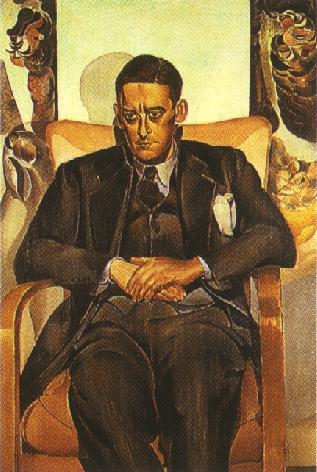 I’d had the idea of using T.S. Eliot’s poems as inspiration, notably The Waste Land, Ash Wednesday, and Four Quartets. The Arthurian material’s used symbolically in The Waste Land, while the other poems have to do with Eliot’s conversion to Anglicanism; I like the idea of using the religious themes of those poems to echo the older religious writing in the quest for the Holy Grail. Now, The Waste Land and the poems of the Four Quartets are similarly structured; they’re divided into five movements, like a sonata or musical quartet. So what if I borrow or echo that structure in the Modred story?
I’d had the idea of using T.S. Eliot’s poems as inspiration, notably The Waste Land, Ash Wednesday, and Four Quartets. The Arthurian material’s used symbolically in The Waste Land, while the other poems have to do with Eliot’s conversion to Anglicanism; I like the idea of using the religious themes of those poems to echo the older religious writing in the quest for the Holy Grail. Now, The Waste Land and the poems of the Four Quartets are similarly structured; they’re divided into five movements, like a sonata or musical quartet. So what if I borrow or echo that structure in the Modred story?
The two books divide into two halves each, making four quarters. The first quarter will be various scenes from early in Modred’s life, including, I assume, the quest for the Grail, which I definitely want to include. The second quarter will go from the revelation of the affair to the end of Camelot and Modred’s death. The next two quarters will show, I imagine at this point, Modred interacting with the elven court. But maybe I could add a bit more. If I have a prologue, an epilogue, and interludes between the quarters … then I have another five-part unit, a fifth quartet. If I’m going to use the theme of the Quartets of the interaction between time and the sense of release from time given by art and religion, then the ‘fifth quartet’ becomes potentially a way of escaping the straight-ahead chronology of the four main sections.
At the same time, I’ve been thinking about the point of view for the story, and the style I’m going to use for it. Malory’s English is fun, but not something I want to write in this case, not for something of this length. I’d love to try to catch something of Eliot’s style, but that’s obviously based on an incredible precision of language, and I’m trying to crank out a novel in a month. So … what do I want to do?
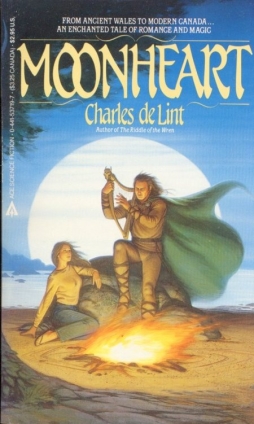 One of the reasons I want to write this novel in the first place is because the Arthurian matter’s so rich, so deep, and has been a set of stories that I’ve encountered my whole life, in all sorts of places. One of those places was a book called Moonheart, by Charles de Lint, which I read as a teenager; one of the main characters there was a Welsh bard named Taliesin, a historical figure about whom many myths grew. Tennyson put Taliesin in his own take on the Arthur legend, making him the King’s bard. I like the idea of using a writer as the man telling this tale. Taliesin, then, could be Modred’s sidekick, an older and possibly wiser or more cynical man.
One of the reasons I want to write this novel in the first place is because the Arthurian matter’s so rich, so deep, and has been a set of stories that I’ve encountered my whole life, in all sorts of places. One of those places was a book called Moonheart, by Charles de Lint, which I read as a teenager; one of the main characters there was a Welsh bard named Taliesin, a historical figure about whom many myths grew. Tennyson put Taliesin in his own take on the Arthur legend, making him the King’s bard. I like the idea of using a writer as the man telling this tale. Taliesin, then, could be Modred’s sidekick, an older and possibly wiser or more cynical man.
So Taliesin tells the tale, and the four ‘main’ sections of the story will be things he saw himself, his adventures with Modred. The prelude will be Modred’s life before Taliesin meets him, as the bard later learned it; the interludes will be Taliesin telling tales he’s learned of Modred’s adventures on his own; the epilogue will be a big wrap-up following Modred’s eventual death. Because even if Modred escapes dying against Arthur, I think that gravity, that tragic fate, is what gives the legend so much weight; and I think it’s something fitting for Modred as I’m envisioning him.
Okay, so, that means I now have an idea of how the second quarter of the book’s going to break down, and an overall structure for the rest of the story. How do I fill that structure?
The first time he’s mentioned in the book, Merlin’s prophesied to Arthur that a child born on May Day will cause the ruin of his kingdom. Arthur has all the noble children (says Malory; I presume, given the terms of Merlin’s prediction, “he that should destroy him,” Arthur would get boys only) brought to him, and put on a boat. The boat sets out for an unknown destination, and sinks, but Modred’s rescued and brought up by a good man before coming to court at the age of fourteen. This is fine; this can be my prelude.
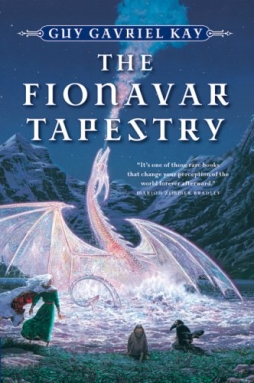 Guy Gavriel Kay made much of the ship story in The Fionavar Tapestry, using it to darken the figure of Arthur, a man who would kill a bunch of kids just to get at the one who’d threaten his rule. As I read the story, though, there’s something different going on. If Arthur’d wanted the kids dead, he could have just had them done away with when they’d all gathered at Camelot or wherever. Instead he puts them on the ship, which sinks—but the sinking wasn’t something he had in mind. He was sending them somewhere. Where?
Guy Gavriel Kay made much of the ship story in The Fionavar Tapestry, using it to darken the figure of Arthur, a man who would kill a bunch of kids just to get at the one who’d threaten his rule. As I read the story, though, there’s something different going on. If Arthur’d wanted the kids dead, he could have just had them done away with when they’d all gathered at Camelot or wherever. Instead he puts them on the ship, which sinks—but the sinking wasn’t something he had in mind. He was sending them somewhere. Where?
Well, Malory mentioned the ship was “drave unto a castle.” After reading up on Taliesin, I can’t help but recall a Welsh poem supposedly recited by Taliesin in which he recounted an ill-fated expedition led by Arthur against a fortress on a fairy island. Maybe the same fortress?
Was Arthur sending the kids to fairyland, where they’d live but be outside of time, and therefore no threat to Camelot? Could work. Was he sending them to Avalon, or was there some other fairy island? In fact, how do I want fairyland to work? Is it a physical place? Is it another dimension? If Modred’s going to adventure around there, I should know this. More questions to think about; answering them could help settle how I want the second half of the story to go.
But about that first quarter: Modred’s first mention as an actual knight comes during an adventure of Launcelot’s, when he fights in a tournament against an ally of Morgan le Fay’s. In fact, it’s one of Launcelot’s first adventures in the book. If Modred’s a friend of Launcelot, I should mention this. Maybe it’s the first time they meet each other? That could be a chapter. What else?
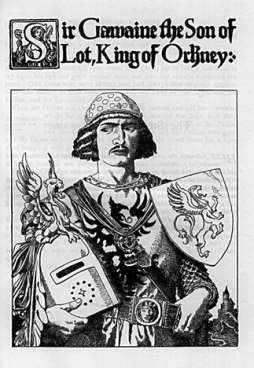 One of the key subplots in Le Morte d’Arthur has to do with the family feud between the clan of Gawain and the clan of King Pellinore. Pellinore killed Gawain’s father King Lot, and Gawain kills Pellinore (we’re told) ten years after he became a knight. Later in the book, Gawain and his brothers—including Modred—are said to kill Sir Lamorak, Pellinore’s son. This follows a scene where Lamorak was discovered making love to Morgause, Lot’s wife and the mother of Gawain and Modred; her son who discovered them, Gaheris, killed her.
One of the key subplots in Le Morte d’Arthur has to do with the family feud between the clan of Gawain and the clan of King Pellinore. Pellinore killed Gawain’s father King Lot, and Gawain kills Pellinore (we’re told) ten years after he became a knight. Later in the book, Gawain and his brothers—including Modred—are said to kill Sir Lamorak, Pellinore’s son. This follows a scene where Lamorak was discovered making love to Morgause, Lot’s wife and the mother of Gawain and Modred; her son who discovered them, Gaheris, killed her.
That could be a crucial moment. Let’s say Modred kills Lamorak, not knowing Gaheris killed Morgause; he thinks maybe that Lamorak had raped and killed his mother. He envisions himself as bringing justice. Then finds out that he’d been lied to; that he’s killed an innocent man. That’s something to build a chapter around.
Hmm. Maybe Modred was involved in the death of Pellinore, too. Maybe when he came to Camelot, Gawain, then the greatest knight on earth, a superhero in Camelot, has him … oh, say, go to Pellinore’s castle and leave a postern gate open. So Gawain gets in and kills him. Leaving Modred in something of a moral quandary from the start; he did what a good man told him was right, but … it’s an idea, anyway.
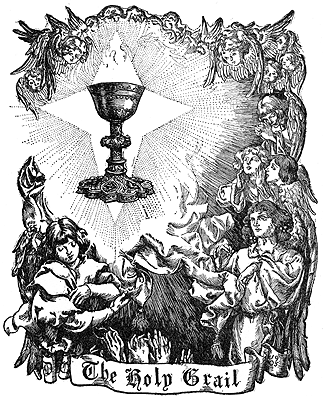 Okay, so what else? The last chapter of the first quarter … is it the Grail quest? Maybe, but how to get Modred involved in that? The Grail’s attained by Galahad, with the help of Perceval and Sir Bors. Plus, there’s the question of chronology; Galahad was fifteen when he got the Grail, but his begetting happens after Launcelot’s been made a knight. In fact, nine years after; there’s a mention in the whole Grail saga that Launcelot’s been sinning with Guenevere for twenty-four years.
Okay, so what else? The last chapter of the first quarter … is it the Grail quest? Maybe, but how to get Modred involved in that? The Grail’s attained by Galahad, with the help of Perceval and Sir Bors. Plus, there’s the question of chronology; Galahad was fifteen when he got the Grail, but his begetting happens after Launcelot’s been made a knight. In fact, nine years after; there’s a mention in the whole Grail saga that Launcelot’s been sinning with Guenevere for twenty-four years.
Interestingly, there’s a mention by Bors at one point (when Galahad is still very young) that Launcelot hasn’t come to see Elaine, Galahad’s mother, because Morgan le Fay had captured him and kept him in prison for six months. Okay, firstly, Elaine is the name of Arthur’s half sister; could she also be this Elaine, the daughter of the Grail King who magics Launcelot into sleeping with her to beget Galahad? The ages don’t quite work, but if I say Elaine’s got some elven immortality, that’s good; and it makes Galahad, the pure Grail knight, Modred’s cousin.
Secondly … Malory may have meant the imprisonment by Morgan to refer back to the events before the tournament where Launcelot fought Modred, since that’s the only time in Le Morte that she captures Launcelot. What if I assume there’s a second time, though? Then maybe that could be the basis for chapter five; Modred rescuing Launcelot. Now, there’s apparently a story (not in Malory) about Launcelot and Modred encountering a hermit, who tells Modred that Arthur’s his father. Which upsets Modred, who kills the hermit.
Yeah, I could use that for chapter five. Maybe the hermit’s actually an ally of Morgan, maybe a demon who’s been bound by her to tell the truth. Which would give Modred a reason to believe what he says, and also explains his killing him without darkening his chartacter too much. Since the story’s not in Malory, I don’t mind twisting it about.
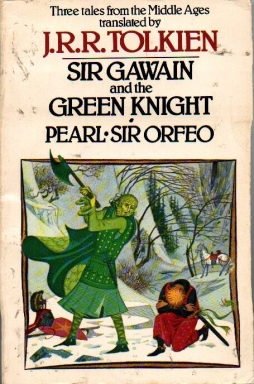 Any other stories not in Malory I want to use? Yes, absolutely; I want to bring in the Green Knight from Gawain and the Green Knight. That poem had the mysterious green-skinned knight challenging Gawain to strike him a blow with an axe if Gawain will promise to submit to a similar blow in one year; Gawain beheads him in one stroke, then the knight picks up his own severed head and reminds Gawain of his promise. The whole thing turns out to be a test of Gawain’s character. Morgan le Fay’s involved, helping the knight.
Any other stories not in Malory I want to use? Yes, absolutely; I want to bring in the Green Knight from Gawain and the Green Knight. That poem had the mysterious green-skinned knight challenging Gawain to strike him a blow with an axe if Gawain will promise to submit to a similar blow in one year; Gawain beheads him in one stroke, then the knight picks up his own severed head and reminds Gawain of his promise. The whole thing turns out to be a test of Gawain’s character. Morgan le Fay’s involved, helping the knight.
Maybe the Green Knight makes a habit of testing Arthur’s knights. Maybe he shows up every Christmas (the setting for Gawain and the Green Knight) and sets things up such that a knight incurs a debt he has to pay off through some act of self-abnegation. It’d make Christmastime awfully scary at Arthur’s court, which is amusing. If Morgan’s involved … she’s kind of an ambigiuous character. She tries to kill Arthur several times in Le Morte d’Arthur, but also takes him away at the end to be healed. Maybe the redemption of Morgan le Fay could be a subplot in the novel?
Morgan’s also Queen of the land of Gore (or ‘Gorre’, but I like the sound of ‘Morgan, Queen of Gore’), one of several nonexistant countries mentioned in the story. Now, older tales have Gore as a magical land, which fits with Morgan. Maybe it’s an elfland, or related to elfland. Still don’t know where elfland is, though. Hmm, but maybe …
According to Malory, Sir Tristram comes from Lyonesse, which is somewhere around Cornwall. Lyonesse is supposed to have been a land which sunk into the ocean, presumably at some point after Arthur’s reign. Maybe Modred causes it to sink? Maybe it’s related to the sunken city of Ys, a Breton legend about a city that fell into the sea. Maybe that’s my big climax; a great battle, the collapse of these lands into the ocean.
Maybe Modred’s actually leading the bad guys against the elven kingdom of Ys, and is opposed by Morgan; he grows more corrupt as she grows more virtuous. He wins, but … she kills him? Or … she summons Galahad, the Grail knight, and the Grail kills him. Maybe that interlude between sections one and two weren’t about the quest for the Grail; it was Modred meeting Galahad, and mentoring him. Maybe he taught Galahad everything he knew of right and wrong, before Galahad set out for the Grail. So in the end it’s own younger sense of right and wrong, in the person of his cousin, who kills him. Maybe he sees this coming and plans for it; maybe not.
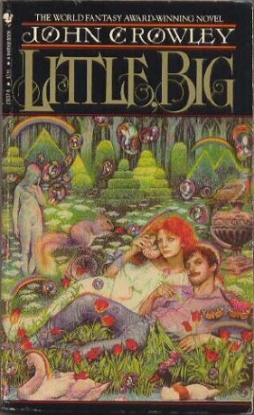 Either way it’s the sinking of Ys, and the end of … Lyonesse? Lyonesse isn’t fairyland; it’s a place where humans live. But what if I imagined it as being a land bridge between Cornwall and Wales, enclosing a good chunk of the Bristol Channel and the mouth of the Severn? Then I’ve got a huge lake. Islands in the lake could be where fairyland is to be found; like the elflands in John Crowley’s Little, Big, the lake is a finite space which contains infinite space within it. When Lyonesse sinks, the ocean pours in, and wipes out … lets call it “Annwn,” the Welsh land of the dead, whose name is typically translated “otherworld.”
Either way it’s the sinking of Ys, and the end of … Lyonesse? Lyonesse isn’t fairyland; it’s a place where humans live. But what if I imagined it as being a land bridge between Cornwall and Wales, enclosing a good chunk of the Bristol Channel and the mouth of the Severn? Then I’ve got a huge lake. Islands in the lake could be where fairyland is to be found; like the elflands in John Crowley’s Little, Big, the lake is a finite space which contains infinite space within it. When Lyonesse sinks, the ocean pours in, and wipes out … lets call it “Annwn,” the Welsh land of the dead, whose name is typically translated “otherworld.”
That has to be where Arthur sent the ship with the boy-children on it; it’s where Modred grew up. It’s where Taliesin sees Arthur defeated by an elven fortress. It’s a place of ageless elf kingdoms, of ancient witchery.
Okay, so. The prologue has Modred growing up in Annwyn. Then he goes to Camelot, gets tested by the Green Knight, fights Launcelot at a tournament, kills Lamorak, and saves Launcelot from Morgan before learning the terrible truth of his parentage. He helps mentor and raise Galahad; then reveals the truth of Launcelot and Guenevere’s affair, leading to the death of Arthur and the end of Camelot. I can refine the character arc and thematic details later; I’m just trying here to work with the text of Malory, and the texts linked to Malory, to generate some ideas and events I can work into a story.
Interestingly, it seems to me that the second half of the story might actually reflect the first half. If the second quarter leads to the battle that destroys Camelot, the fourth quarter leads to the battle that destroys Ys. That implies that the third quarter will mirror the first, a series of more loosely-connected episodes that (I hope) gain momentum, leading to a tightly-woven even-numbered quarter. That’s neat; but what can I possibly use in that quarter that’d match the resonance of the King Arthur tale? What myth can I find or create for the second half of the story that’ll have the weight of the myth underlying the first half?
Probably none. But maybe I could go another way. If the sinking of Lyonesse and Ys, and the destruction of fairyland, ends the tale, maybe I’m talking about the triumph of history—which would relate to the themes of the Four Quartets, the bondage of time and the material world. This tracks, because if there is a historical Arthur, he reigned during a time that’s not well recorded; that’s why the legend was able to grow as it did, probably, because there are no facts to get in its way.
 If there was a historical Arthur, he probably fought against the ancestors of modern Englishmen—against the Angles and the Saxons. So maybe the movement of the third quarter, and of the second book as a whole, is the invasion of the Anglo-Saxons with Arthur out of the picture.
If there was a historical Arthur, he probably fought against the ancestors of modern Englishmen—against the Angles and the Saxons. So maybe the movement of the third quarter, and of the second book as a whole, is the invasion of the Anglo-Saxons with Arthur out of the picture.
Interestingly, this can be made to agree with Malory. Early in the book, a poor knight named Sir Balin finds the spear that pierced the side of Christ, and uses it to give a Dolorous Stroke that lays waste three kingdoms (which I’ll identify as Listeneise, home of Pellinore, Carbonek, home of the Grail, and Cameliard, home of Guenevere). Balin’s described as a disinherited knight of Northumberland. Northumberland was one of the first kingdoms of the Norse invaders in England; a bit later than Arthur’s time, really, but I can argue that it was a kingdom later recaptured by Arthur. On the other hand, I could argue that after the Waste Land was created, that part of Britain was beyond Arthur’s sphere of influence.
So … I can subtly foreshadow the themes of the third quarter and second book early on, especially since I could say Modred’s mother, as Queen of the Orkneys, would be on the front lines of battle against the Norse. I can also, if I want, bring in the Norse Gods, which could be useful since if I go the corruption-of-Modred route, then it seems to me his leading an army of evil in final battle is very similar to Loki leading the forces of evil at Ragnarok. Hmm … and poking around Wikipedia, I notice something else that could be useful.
It seems that according to certain Icelandic sagas, one of the Norse kings that may have been in Northumberland was a certain Hrothgar. Who is a major supporting character in the first great work of English literature. A quick double-check, and I think I can work this in. At some point in the third quarter, Modred goes to the north of Britain, and gets involved in events in which a couple of nobles from the Scandinavian people called the Geats get killed—and Beowulf, a great hero who slew the monster Grendel that was descended from Cain, becomes King of the Geats.
 In the poem, Beowulf’s ascension happens in a fifty-year gap between his killing Grendel and his death at the hands of a dragon. So I can work it into Modred’s tale any way I like. Why not go further: Taliesin’s writing this book, the Book of Modred, after the death of Beowulf, after the death of the last hero and the last dragon in the world; the final passing of the old world of myths. Perhaps as an experiment, before writing his recollections of Beowulf, Taliesin composed a long poem on Beowulf’s life and career … and so we see the English language, the English culture, moving in time to overwrite the mythic world of the past. But also to incorporate it, to make it something that echoes on for hundreds and thousands of years.
In the poem, Beowulf’s ascension happens in a fifty-year gap between his killing Grendel and his death at the hands of a dragon. So I can work it into Modred’s tale any way I like. Why not go further: Taliesin’s writing this book, the Book of Modred, after the death of Beowulf, after the death of the last hero and the last dragon in the world; the final passing of the old world of myths. Perhaps as an experiment, before writing his recollections of Beowulf, Taliesin composed a long poem on Beowulf’s life and career … and so we see the English language, the English culture, moving in time to overwrite the mythic world of the past. But also to incorporate it, to make it something that echoes on for hundreds and thousands of years.
Even in such a humble form as a novel cranked out in a month.
So that’s my plan. How’s it going so far? The prologue’s come in at 12,000 words, which is ridiculously long, but a) I find that it often happens in the early going of NaNoWriMo novels that sections take up more words than I’d expected, and b) I can, if I choose to redraft the thing, cut what I want and move material around as seems best—maybe some of what I have now in the prologue would make more sense in the interludes, say. The point is, if I get the thing written and figured out, I can then sit down and see what I really have, and work out at that point how best to edit it into a coherent shape.
What I have now, though, is an idea for a structure. And ideas for how to fill that structure. The name of the game for November is generating text, and getting the tale told. I’m at about 25,000 words as I write this, which isn’t bad if I’m shooting for 50,000 words, and not good at all if I’m going for 100,000. I’m not terribly worried, though; I’ve been busy with other work the past couple of weeks, and it’s always happened before that my daily word count picks up once I get well into a story. So we shall see what we shall see.
Matthew David Surridge is the author of “The Word of Azrael,” from Black Gate 14. His blog is Hochelaga Depicta.
The thing I’ve always dug about Mordred is that he’s a prince of two thrones, but an heir to none.
That has to cause a little secret bitterness. Especially since his eldest brother Gawaine, was a hedonist who was also seems more loyal to Arthur (a man who warred against his father) than to his own people.
To my mind, to learn that he was also an incestuous little secret would be enough to push anyone over the edge a bit.
Its easy to see how that would be the last straw in a ‘he was a good knight until he learned his parentage’ story.
I love your ideas about incorporating the Germanic material into a King Arthur story, but be careful with your use of the word ‘Norse’: I don’t think it applies to the Angles and Saxons, etc or to Hrothgar/Beowulf and their ilk. (I think the general rule of thumb is that Scandinavians can be ‘Norsemen’ only after the late 8th century).
You can still incorporate things like Ragnarok and the Germanic gods, of course (it’d be really cool) but you’d probably have to present them as earlier or slightly different version of themselves: ‘Woden’ instead of ‘Odin’, ‘Thunor’ instead of ‘Thor’, a hypothetical A-S version of Ragnarok, etc.
Or you could do whatever you want because it’s your story(!)
PS: Ever considered sidestepping the death of Mordred at the final battle against Arthur by replacing him with a fetch? (i.e.: a spirit-double, Celtic doppelganger, etc)
Michael: I like your point about Modred as prince of two thrones a lot. As for Gawaine … he’s kind of an interesting figure for me. In Malory, he starts out as somewhat cynical, and then becomes for a time the best and most respected knight of Arthur’s court, and then later becomes so focused on vengeance against Pellinore and his family that he ends up causing a feud that helps to split the Round Table. So there’s kind of an interesting arc there.
At the same time, as you say, he had a reputation at various times as a bit of a hedonist. And his behaviour during the Grail quest is a bit … earthy (actually, he’s the guy who kicks off the whole quest, just because after the Grail visits the round table in a vision, he wants to see what’s actually behind the veil surrounding it; sorta suggests somebody who maybe doesn’t know when to stop, or somebody proud enough to think he deserves to get access to, well, the holiest of things). Arthur did make him a Duke; but then (according to the story of Sir Gareth) he also went fifteen years without seeing his mother or youngest brother. Which seems excessive. So, yeah, there’s a lot to play with, in terms of that character and Modred’s relationship to him.
Cephalophore: Great point about the nomenclature issue with ‘Norse’; I admit I was trying to find a word that covered all of the Germanic and Scandinavian peoples settling in (what became) England. But, yes, ‘Norse’ is from the 8th century on. In the story, I’m certainly going to try for more precision.
Although I’m inclined to be a bit more lax when it comes to the gods. I’ve always had the idea that the stories in the Eddas were altered by the fact that they were written up by a Christian — but who can say at this point how much they were changed? At any rate, I don’t know about names (Odin in particular has a bunch to choose from), but I suspect that the Odinic gods will appear in a very … archetypal … form. The old one-eyed wandering wizard-king. The stern one-handed warrior, a stickler for rules and law. The hot-tempered protector who rules the clouds. That sort of thing.
Modred as doppelganger is an interesting idea. I don’t think I’d go that route in this case, though, for two reasons. One is simply that I want to stick as closely as I can to Malory’s actual words — just a kind of ground rule I made for myself — and he’s pretty clear about Modred being Modred, and falling “stark dead” in battle with Arthur. But, secondly … I really like the power of that final battle. Father against son. A man spitted on a spear, pulling himself along that wooden spike to make a last fatal strike at his sire and killer. It’s powerful stuff.
I suppose I also like the idea of Modred actually dying, and then returning. It means that in the second book he could be a different character — slightly different, or very different, depending on how I want to play it. I’m kicking around the idea he has some kind of near-death experience, a vision of the afterlife, and what that would do for him. We’ll see when we get there, I guess.